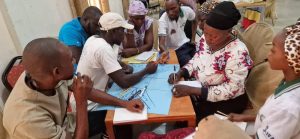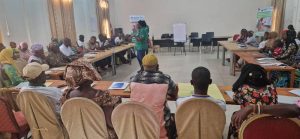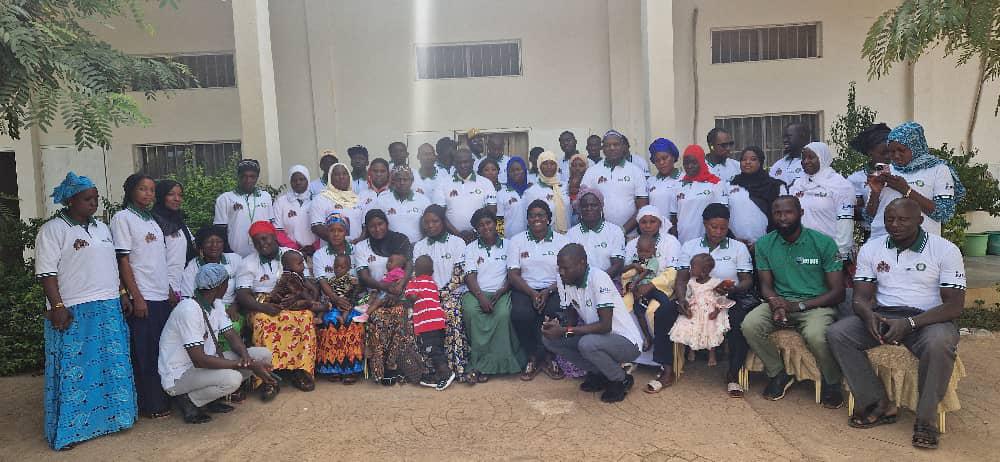- July 1, 2024
- By gisqo
- Agriculture
- (0) Comment
On Friday, June 28, 2024, the ROOTS project wrapped up a comprehensive four-day training session for the Regional Facilitators of the Gender Action Learning System (GALS) at Mansakonko, Lower River Region (LRR). This intensive training brought together 60 dedicated participants, including 23 Community Focal Persons, representatives from the Department of Agriculture, the Ministry of Youth and Sports, and the Community Department, along with the ROOTS Field Assistants for Capacity Development.
Training Goals and Objectives
The primary aim of the training was to foster a deep understanding of the ROOTS project among the Regional Facilitation Teams. Additionally, it sought to enhance the capabilities of Community Focal Persons and partners by equipping them with practical tools and GALS facilitation skills necessary for community-level implementation.
Empowering Communities Through GALS
The Gender Action Learning System (GALS) is a transformative household methodology designed to empower men and women to achieve a more fulfilling and equitable life. GALS employs straightforward mapping and diagram tools for visioning and planning, enabling individuals to envision and enact positive changes in their lives. This methodology is a catalyst for change, promoting gender equality and community development.
Building Capacity with Practical Tools
During the four-day training, participants engaged in hands-on activities that demonstrated the practical applications of the GALS methodology. They learned how to utilize simple yet effective tools for visioning and planning, which are crucial for driving change at the grassroots level. These tools help communities set clear goals, develop actionable plans, and track their progress toward achieving a better quality of life.


Collaboration and Support
The training underscored the importance of collaboration and support among various stakeholders. By bringing together community focal persons, government representatives, and field assistants, the ROOTS project ensured a comprehensive approach to capacity building. This collaborative effort is essential for the successful implementation of the GALS methodology across different communities.
Impact on Gender Equality and Community Development
The GALS methodology is instrumental in promoting gender equality and empowering both men and women to contribute to community development. By providing individuals with the skills and tools to make informed decisions, GALS fosters an environment where everyone can participate in and benefit from developmental initiatives. This approach not only improves individual lives but also strengthens the overall community.
Future Prospects and Sustainability
Looking ahead, the ROOTS project aims to continue its support for regional facilitators and community focal persons. Ongoing training and capacity development are vital to ensure the sustainability of the GALS methodology. By maintaining this support, the project hopes to see long-term positive impacts on gender equality and community development throughout the Lower River Region and beyond.
Conclusion
The successful completion of the four-day training session marks a significant milestone for the ROOTS project and the communities it serves. By empowering regional facilitators with the skills and knowledge to implement the GALS methodology, the project is paving the way for sustainable community development and gender equality. As participants return to their communities, they carry with them the tools and inspiration to drive meaningful change, making their communities more resilient and equitable.


